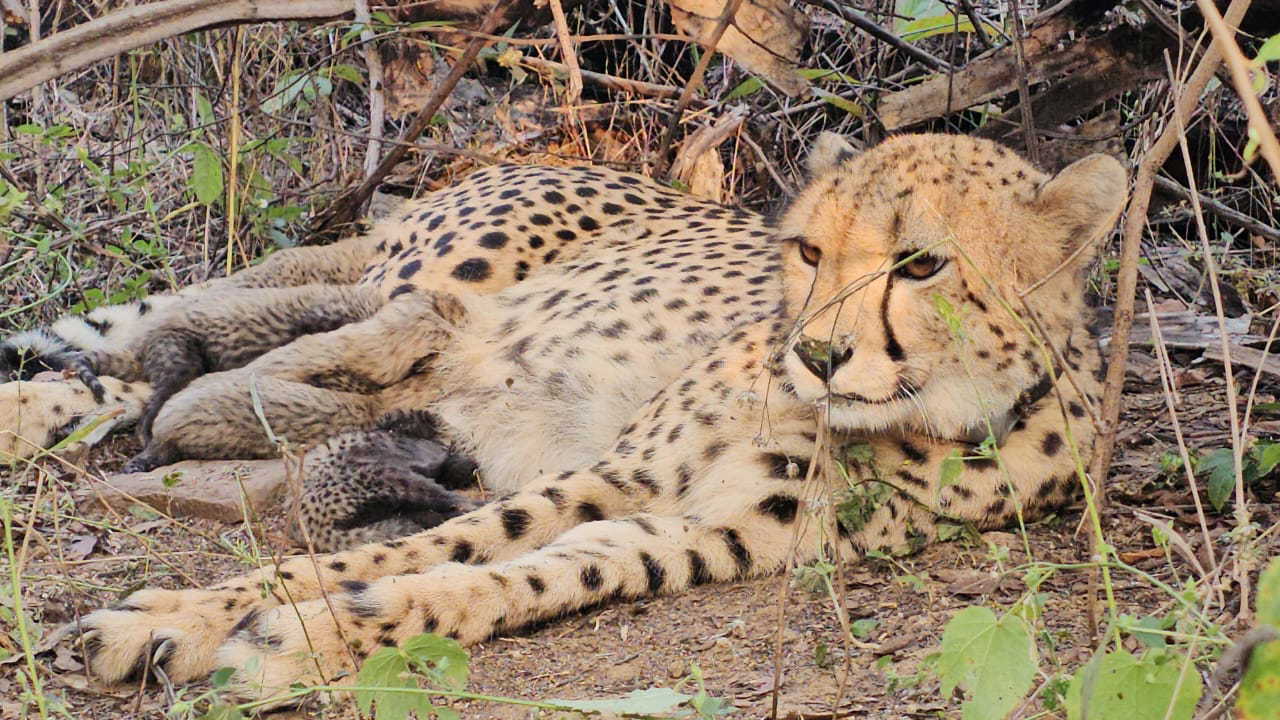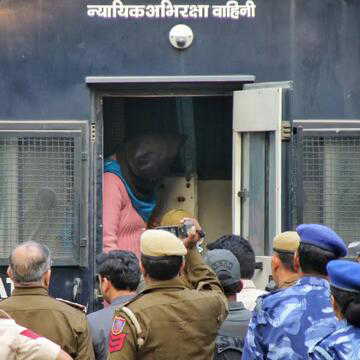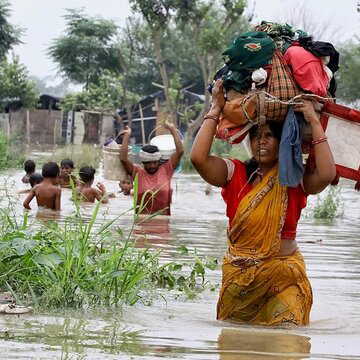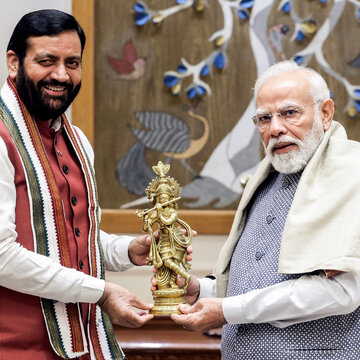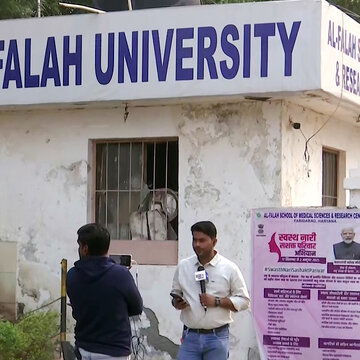The date was 29 March 2023, a day Kuno National Park will never forget. Celebrations broke out everywhere when, for the first time in nearly 75 years, a cheetah gave birth in the wild on Indian soil. And not just one, four tiny cubs.
It felt like history had exhaled after decades of silence. But joy turned into heartbreak within two months. A brutal summer scorched Madhya Pradesh, water dried up, and three of the four cubs died. The lone survivor, a fragile little female, had no celebration waiting for her. Social media went silent. Her Namibian mother, Jwala, turned her face away. From one side of the enclosure, the cub would stare at her mother, stretching a paw through the fence, hoping for warmth. But the mother never looked back.
And yet, somehow, the cub lived. Survival of the fittest. They named her Mookhi.
Also Read | NIA arrests four more in Red Fort blast case, uncovers white-collar terror module
Two and a half years later, that same Mookhi, India’s first wild-born African cheetah, gave Kuno the sweetest comeback story imaginable.
On Thursday morning, forest officials confirmed that Mookhi had given birth to five cubs, becoming the first African cheetah born in India to give birth on Indian soil.
Just two months earlier, in September, she had turned 30 months old, stepping into adulthood. She had been released fully into the wild soon after, and officials had quietly hoped she would pair with a healthy male. According to field teams, she likely mated with one of the three male cubs born to the Namibian female Asha.
So far, 20 adult cheetahs brought from Namibia and South Africa had produced 20 cubs in Kuno. Some did not survive, but 16 young cheetahs were roaming the vast enclosures.
When her siblings died, Mookhi was just two months old. Since then, she was raised entirely by Kuno’s forest staff. She got no milk from her mother, no lessons in climbing trees or fighting. Her mother Jwala, who later gave birth to four more cubs, showed no such distance with them yet every attempt to reunite her with Mookhi failed.
So they kept Mookhi in a separate enclosure during her early months. Later, she was allowed to watch other cheetahs from a distance. Rangers dropped small prey into her area, teaching her how to hunt. She learned to fight the world on her own terms.
For the first year of her life, she did not even have a name. And today, Mookhi, the orphan of Kuno, has given birth to five cubs in her very first litter. No wonder Kuno is celebrating again.
“This is wonderful news. All five cubs are healthy. With them, we now have 21 cheetahs born in India,” said Uttam Sharma, Kuno’s Chief Conservator of Forests. “For the project, nothing could be better.”
Also Read | Rahul Gandhi’s ‘vote chori’ claims draw sharp rebuke from 272 prominent citizens
With Mookhi’s litter, Kuno now has 29 cheetahs, not counting the three sent earlier to Gandhi Sagar sanctuary. Across India’s open jungles, there are now 32 cheetahs, adults and cubs combined. Next month, eight more cheetahs are expected from Botswana under Phase III of the project, taking the count to 40.
Notably, in just two and a half years, India’s cheetah population is expected to double.
There was never a guarantee that African cheetahs would survive India’s climate. Or maybe there was, we just didn’t know how to read it then.
Mookhi was the sign. She lost her siblings. Her mother abandoned her. She grew up alone. But she rewrote the future anyway.
Five little sparks of speed, and a new beginning for Kuno.


